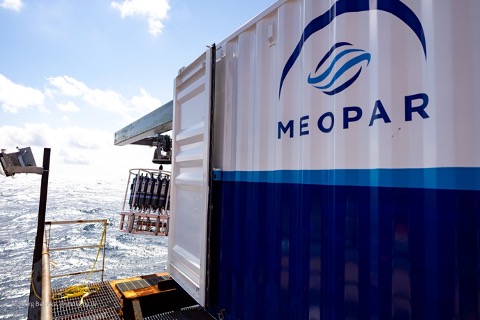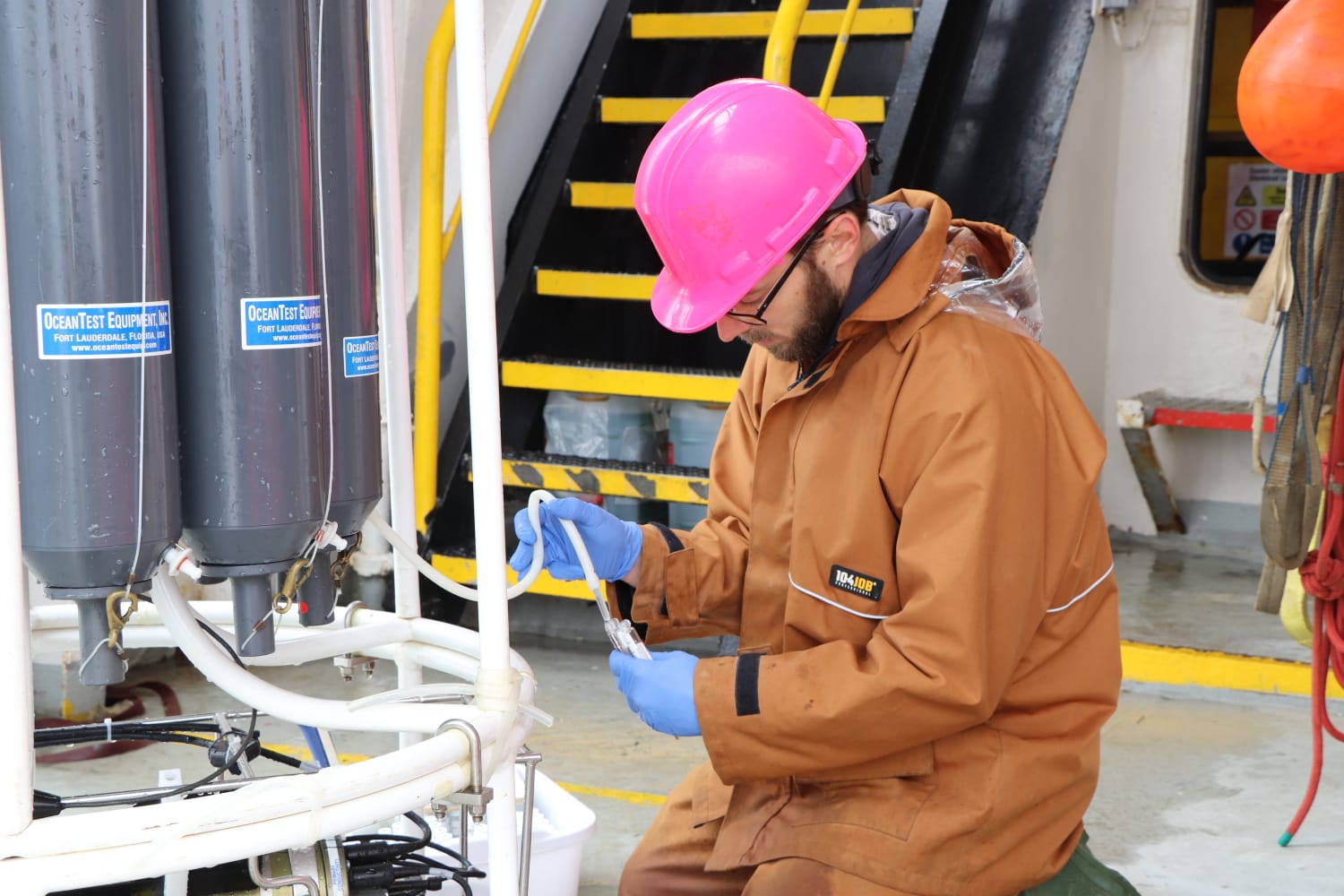
Photo by MEOPAR
Canadian ocean science continues to benefit from having shared access to modular ocean research infrastructure (MORI) to support sea-going ocean research with three MORI units (containerized laboratories and meeting rooms), which are being deployed on three different vessels in July 2023. Select MORI units will be in operation on the Atlantic Condor, Polar Prince, and Coriolis II ships, on both east and west coasts.
MORI units are designed to facilitate research on diverse vessels by offering flexible and adaptable laboratory spaces and workspaces. The self-contained units can be used independently or combined to create larger at-sea research complexes, providing researchers with versatility, flexibility, and convenience on large and smaller vessels alike. The modularity improves access, allows sharing, and enables scientists to collaborate effectively, maximizing their potential for discovery.
From July 1 to 12, 2023, the research vessel Coriolis II used a containerized chemistry laboratory to support Réseau Québec maritime’s (RQM) Flagship Research Program to Mitigate the Impacts of Commercial Shipping on Ecosystems (PLAINE), funded by the Ministère des Transports et de la Mobilité durable (MTMD), with support from Reformar. PLAINE aligns with Quebec’s maritime vision for sustainable development. With a budget of $5 million over five years, PLAINE focuses on knowledge sharing and data mobilization regarding the environmental and social impacts of commercial shipping in Quebec’s maritime territory. On this cruise, ten research teams from different institutions shared 12 days of ship time, covering a wide area from Trois-Rivières to the Hunguedo Strait, including the Saguenay Fjord and Gaspé, contributing to ongoing exploration and understanding of the region. Whatmore, this cruise is being led by Dr. Ludovic Pascal, a MEOPAR Postdoctoral Fellow Alumni, where this is his first opportunity to lead a scientific expedition. The MORI laboratory allows space for sophisticated chemical analysis instrumentation on the vessel.
”Having access to modular equipment allows me to apply for a wide range of funding calls, including access to ship time. In addition to enabling me to conduct more research, it gave me the opportunity to lead my first scientific cruise.
Dr. Ludovic PascalPostdoc fellow, Institut des Sciences de la Mer de Rimouski

Photos by Ludovic Pascal
Aboard the research icebreaker Polar Prince this month, the Students on Ice Foundation used a containerized laboratory designed for biological research to support the Innu Nation Uinipekᵘ Ocean Expedition. The expedition will span portions of the Innu Nation Marine Zones, starting in Sheshatshiu traveling through Lake Melville, and weaving along the coast to Natuashish before returning back to Sheshatshi. This expedition, involving Indigenous youth, scientists, and cultural leaders, aims to accelerate and scale the collection of data, build collaborative partnerships, and help in the development of action plans for the management, protection, and economic development of priority marine areas, and focus on other Innu priorities. By fostering collaboration, knowledge sharing, and cultural exchange, the expedition seeks to contribute to ocean conservation efforts and promote sustainable practices for the benefit of present and future generations. The lab container provides a valuable, custom working environment. It is no stranger to the Polar Prince having previously been deployed throughout the Canada C3 Expedition.
Photos courtesy of Students on Ice Foundation
With Atlantic Towing’s assistance, a MORI unit is being used as a conference room and debriefing area aboard the Atlantic Condor. While the Atlantic Condor will mobilize in Vancouver and Victoria this month and acts as an International Fisheries Patrol Vessel for DFO across the Pacific this summer.
The MORI units’ integration with these diverse vessels exemplifies the potential for collaboration and sharing of cutting-edge technology on seagoing expeditions by diverse users for different purposes. MORI’s Initial Development and Demonstration (IDD) phase received financial support from Irving Shipbuilding and MEOPAR and was initiated by the National Research Vessel Task Team. The use of MORI units has empowered scientists, including early career researchers, to conduct and lead research in challenging marine environments, even without access to specialized research vessels.
This year’s simultaneous deployment of MORI units on three different vessels of different types shows, again, the power of shared, modular ocean research infrastructure. The modularity allows research capacity to be shared efficiently across different regions and available vessel types.
There is growing demand for ocean research capacity, all along Canada’s coastline and throughout its ocean spaces, as a result of growing awareness of threats to the ocean environment and as a consequence of the rapidly expanding use of the ocean for new economic purposes. The demand for sophisticated ocean research capacity is likely to continue to grow: the flexibility of MORI looks like an appropriate way to plan for this future.
For media inquiries and questions, please contact: info@meopar.ca

